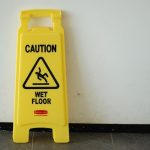How to Handle Security Deposit Disputes
Landlord-tenant disputes are unpleasant for everyone. Both parties want the matter settled amicably, fairly and quickly, but that doesn’t always happen. Security deposits generate a large share of landlord-tenant disputes. In these cases, the Massachusetts security deposit law can help to clarify who is at fault.
Security Deposit Basics
If a deposit is required for a rental, the landlord should provide a lease or a rental agreement that includes a move-in checklist and a description of the premises. The renter should receive a receipt for the deposit showing his or her name, the amount of the deposit and the date the deposit was paid. The renter should also be told who, if anyone, is managing the property on behalf of the landlord.
Security deposits cannot exceed one month’s rent, and they must be refunded within 30 days after a tenant moves out (unless there are repair costs). The landlord must inform the tenant of the bank name, bank location and account number where the security deposit is being held (in escrow). In Massachusetts, landlords must pay renters five percent interest per year on the deposit or the interest on the deposit paid by the bank. That interest must be paid to the tenant annually or within 30 days after the tenant moves out.
Why Landlords Withhold Deposits
Most security deposit lawsuits are brought by tenants against landlords for refusing to refund their deposits. Most commonly, the landlord claims that the tenant has damaged the property, failed to clean the premises or owes back rent. If these claims are true, the landlord can then use all or part of the deposit to cover the resulting losses.
Landlord Responsibilities When Deposits Are Withheld
Landlords who refuse to refund a deposit must provide the tenant with a breakdown of what the deposit was applied to within 30 days after the tenant moves out, and refund the difference.
Landlords can use a security deposit to restore the premises to move-in condition if those premises have been altered during a tenant’s occupancy. A landlord cannot deduct money for cleaning the premises if the condition of the property at move-out was at the same level of cleanliness as when the tenant moved in.
Move-out Inspections by Landlords
Most landlords perform an inspection after a tenant moves out; they will then send the tenant either a full deposit or a statement listing any deductions along with the remaining deposit, if any. If possible, accompany the landlord during the move-out inspection and have a copy of the move-in checklist handy. Verbally dispute any unfair charges using the checklist as a backup for your claims. Make a video of or photograph the premises just before you move out in case you need this evidence in court. Should the landlord present a valid reason for withholding your deposit, volunteer to fix the problem immediately in exchange for a full refund of your deposit.
What to Do If the Landlord Won’t Refund Your Money
If you haven’t received your deposit or an itemized list of deductions within 30 days after moving, or if there are deductions you believe are unfair, you should speak to an attorney. Don’t wait for the issue to get worse. Instead, get help from an attorney experienced in landlord-tenant law at McLane & McLane.



